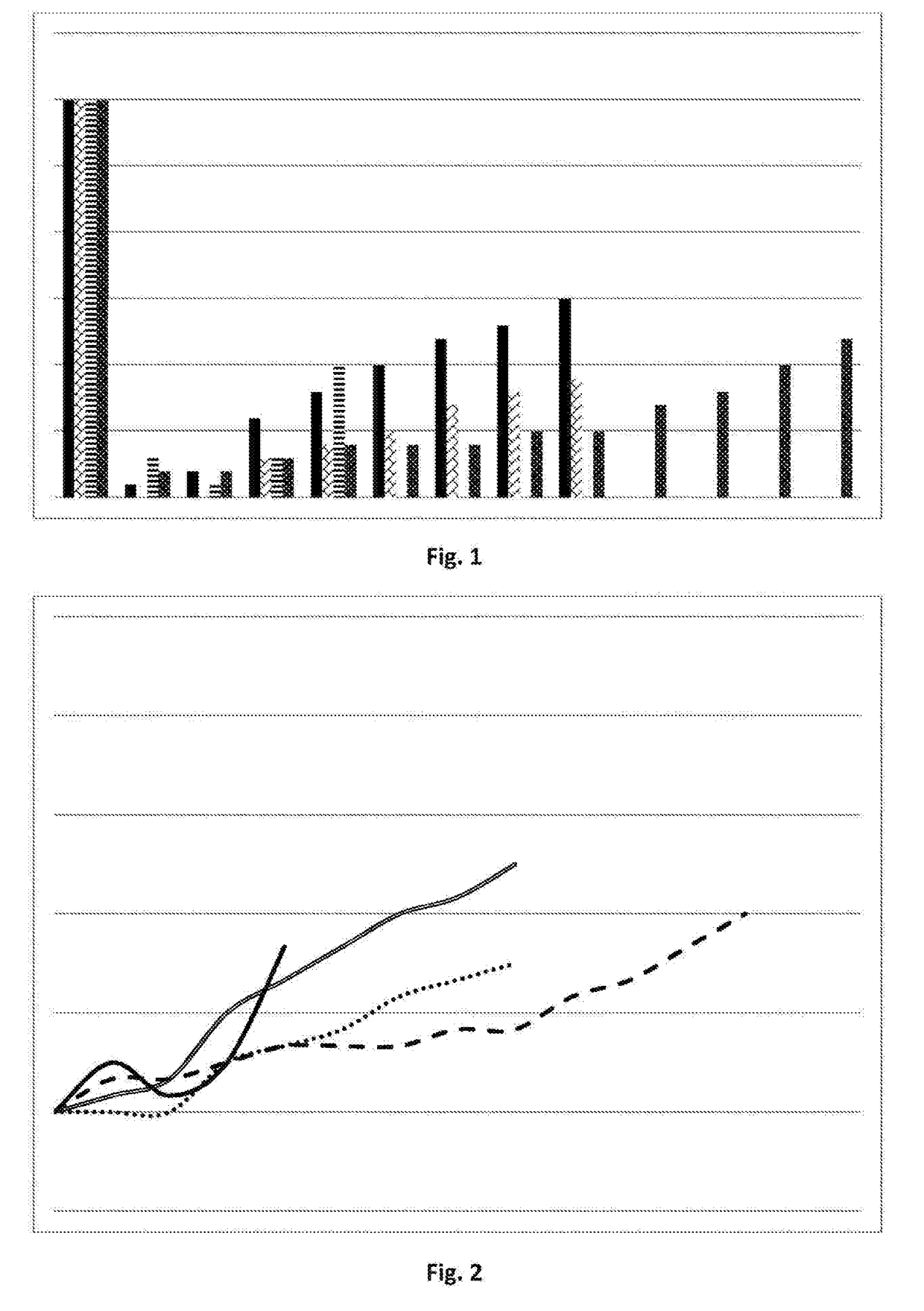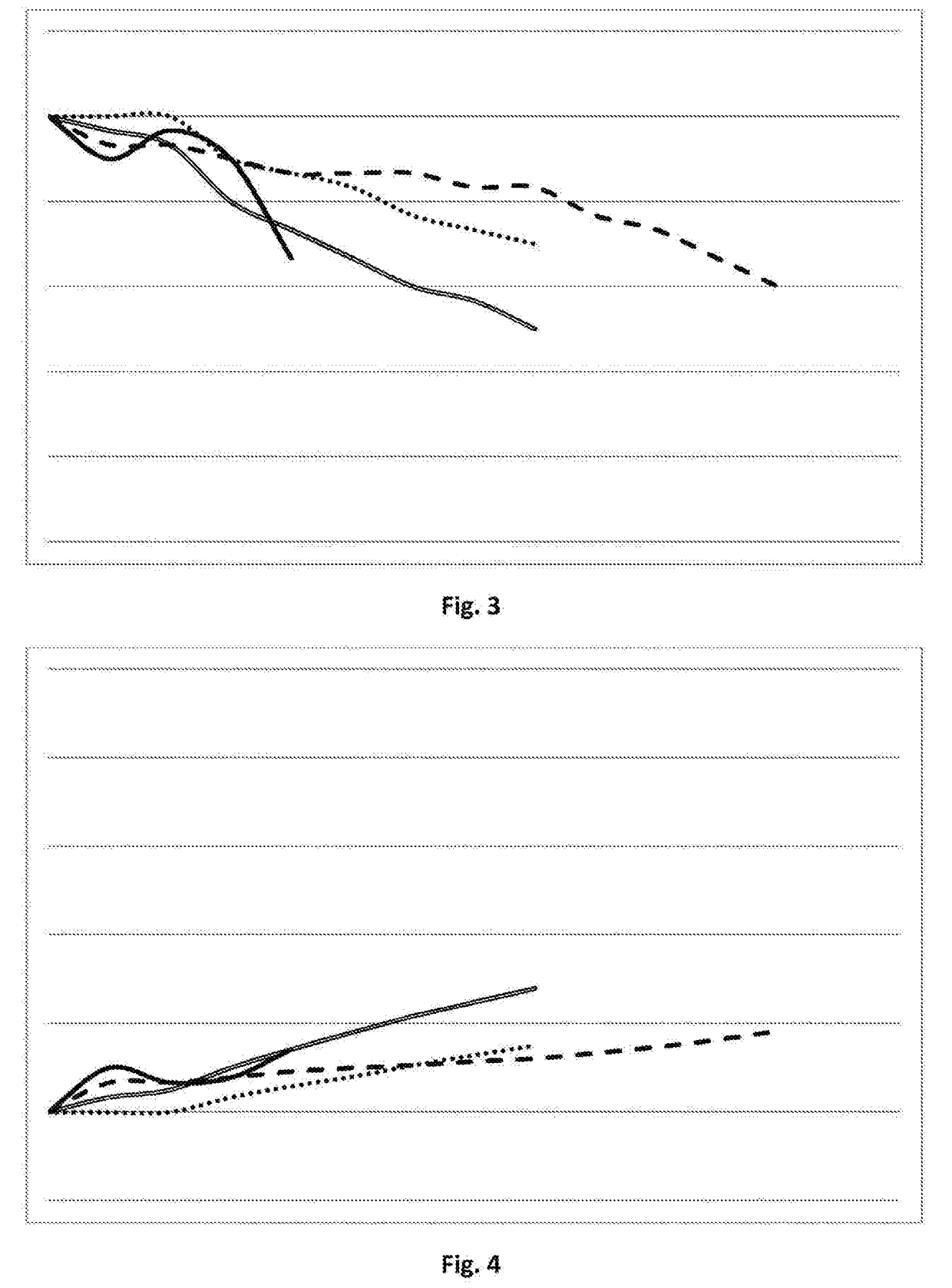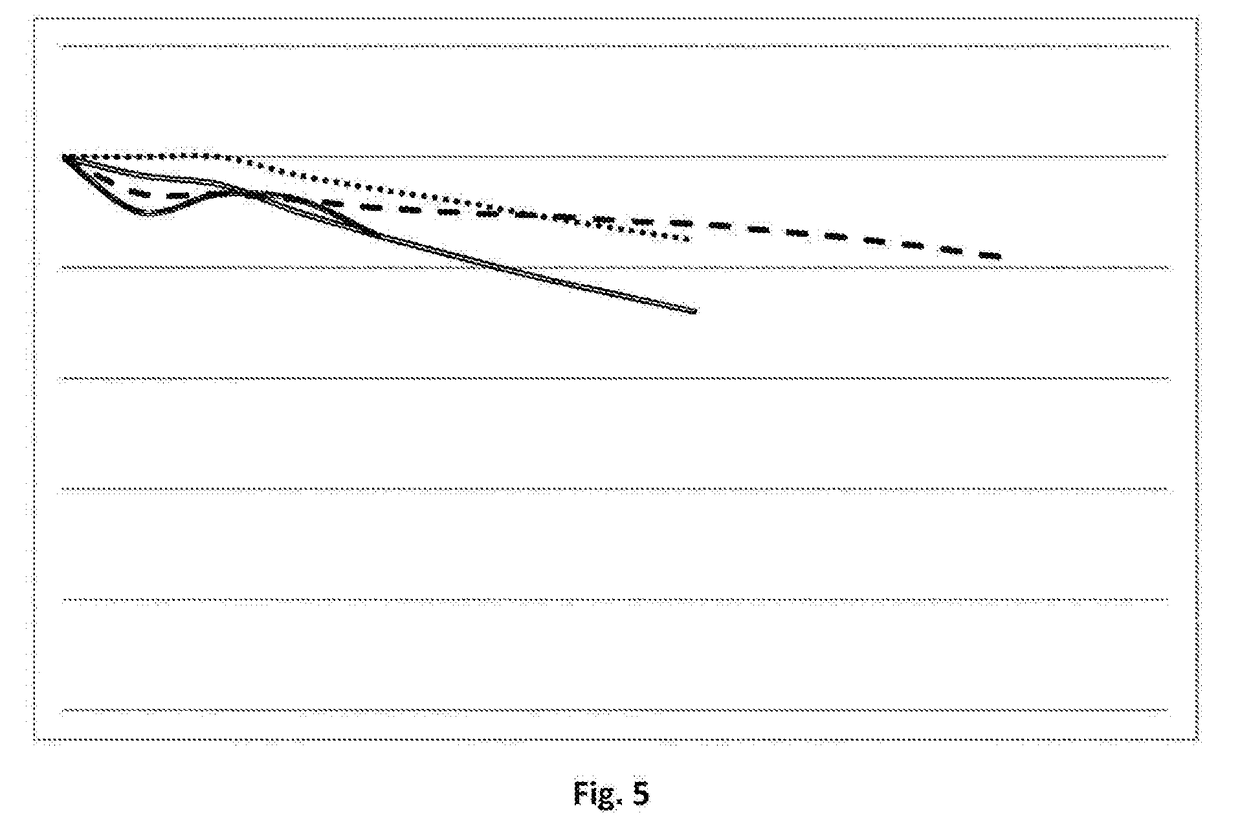Use of a composite textile of natural and/or synthetic and/or artificial fibres and lignocellulose particles for trapping the metals and/or metalloids and/or radionuclides and/or biocides present in water
a technology of synthetic and/or artificial fibres and composite textiles, which is applied in the direction of quarries, other chemical processes, water treatment nature, etc., can solve the problems of sludge production, high cost, and inability to meet the needs of people skilled in the art,
- Summary
- Abstract
- Description
- Claims
- Application Information
AI Technical Summary
Benefits of technology
Problems solved by technology
Method used
Image
Examples
example 1
on of Bark Particles
[0135]Douglas pine bark is ground into granules having a size of less than 10 mm.
example 2
re of a Nonwoven Composite According to the Invention
[0136]Flax fibres are carded. The web thus obtained is then stacked by napping. Between each web layer, granules obtained according to Example 1 are deposited in a ratio of 50% flax fibres and 50% granules by weight.
[0137]The whole is then pressed then needled then passed in a 160° C. oven for 10 min.
example 3
re of a Nonwoven Composite According to the Invention
[0138]Fibres of flax and of PLA are carded. The web thus obtained is then stacked by napping. Between each web layer, granules obtained according to Example 1 are deposited in a ratio of 25% flax fibres, 25% PLA fibres and 50% granules by weight.
[0139]The whole is then pressed then consolidated by thermobonding.
[0140]The nonwoven composite obtained has a thickness of 5 mm and a weight of 600 g / m2.
PUM
| Property | Measurement | Unit |
|---|---|---|
| Fraction | aaaaa | aaaaa |
| Fraction | aaaaa | aaaaa |
| Fraction | aaaaa | aaaaa |
Abstract
Description
Claims
Application Information
 Login to View More
Login to View More - R&D
- Intellectual Property
- Life Sciences
- Materials
- Tech Scout
- Unparalleled Data Quality
- Higher Quality Content
- 60% Fewer Hallucinations
Browse by: Latest US Patents, China's latest patents, Technical Efficacy Thesaurus, Application Domain, Technology Topic, Popular Technical Reports.
© 2025 PatSnap. All rights reserved.Legal|Privacy policy|Modern Slavery Act Transparency Statement|Sitemap|About US| Contact US: help@patsnap.com



